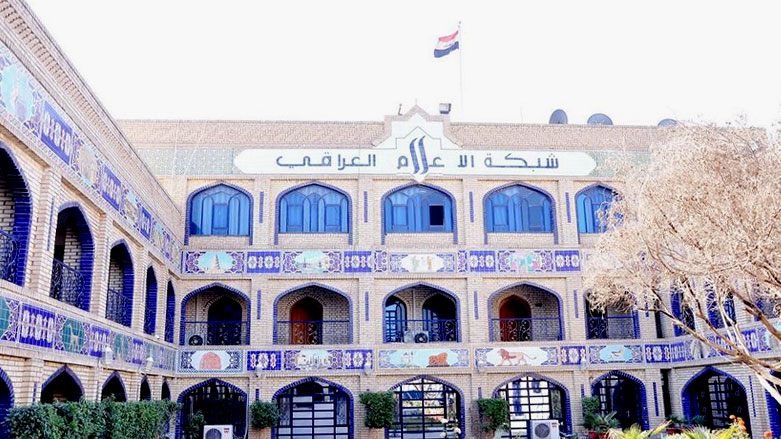Iraqi state TV network to erase Kurdistan Region from its work structure

ERBIL, Kurdistan Region (Kurdistan 24) – The state-controlled Iraq Media Network (IMN) ordered the dismantling of its Kurdistan Region Directorate to replace it with offices it can work with directly in each Kurdish province.
In an official memo, the IMN – a government holding company for al-Iraqiya TV and other state channels – declared it would no longer deal with a central office based in the Kurdistan Region, opting to adopt the same work structure it has with other Iraqi provinces.
The move, however, is viewed as yet another measure to undermine the Kurdistan Region’s constitutional integrity as it would no longer deal with the Kurdish provinces as a whole, but rather individually.
The erasing and renaming of the Kurdistan Region into ‘northern Iraq’ is seemingly becoming a policy enforced by Baghdad since the holding of the independence referendum and the Oct. 16 attacks on the disputed territories.
In an administrative order to the state-owned television network, it was decided the “Kurdistan Region Directorate” would be eliminated and replaced with branches in Erbil, Dohuk, and Sulaimani, which would coordinate directly with Baghdad.
According to the memo, signed by the head of the IMN, Muhajid Abu al-Hill, the offices will be linked to the Directorate of Interior Offices for Television. The official Iraqi television network would not deal with the Kurdistan Region as a constitutionally-recognized territory, as was the practice in the past, but would handle the provinces individually.
The administrative note said that the order was “based on the provisions of Article 16, paragraph 7 of the Iraqi Media Network Law No. 60 of Oct. 25, 2017,” exactly one month after the independence vote was held in the Kurdistan Region and where the overwhelming majority were in favor of secession from Iraq.

The order follows another recent official memo where the Ministry of Foreign Affairs asked its employees not to refer to the Kurdistan Region when requesting vacation time.
A Kurdish lawmaker in Baghdad last week warned the Kurdistan Region's authorities of attempts by the Federal Government of Iraq to dissolve the Kurdistan Regional Government (KRG) and remove Kurdish constitutional rights. In the draft 2018 budget introduced earlier this month, the bill referred to the Kurdistan Region as ‘the provinces of northern Iraq,’ opting to completely ignore the constitutionally-enshrined terminology.
“It is a strategy to change the Constitution of Iraq and removing articles that protect Kurdish rights. Removing the three provinces [Erbil, Sulaimani, and Dohuk] from the framework of the Kurdistan Region would eliminate obstacles to amending the constitution,” the Kurdish lawmaker concluded.
The Kurdish government heavily criticized the budget bill, which went as far as calling the KRG the ‘government of the provinces,’ as well as diminishing its other institutions and ministries’ status to that of ‘provincial authorities.’
A statement by the Kurdistan Region’s government asserted that the designations mentioned above violate articles 117 and 121 of the Iraqi Constitution, which officially recognize the Kurdistan Region and the KRG’s related authorities as a federal region in the country.
Among other measures taken by the Iraqi Federal Government in the aftermath of the Sep. 25 referendum on independence are: the ban on international flights to the Kurdistan Region, the issuance of arrests warrants for members of the Kurdistan Region’s Independent High Elections and Referendum Commission (IHERC); the threatening of government employees who participated in the vote with withholding their salaries; the banning of foreign currency transfers to Kurdish banks; the revocation of Kurdish news outlets’ licenses and the shutting down of their offices in Baghdad.


